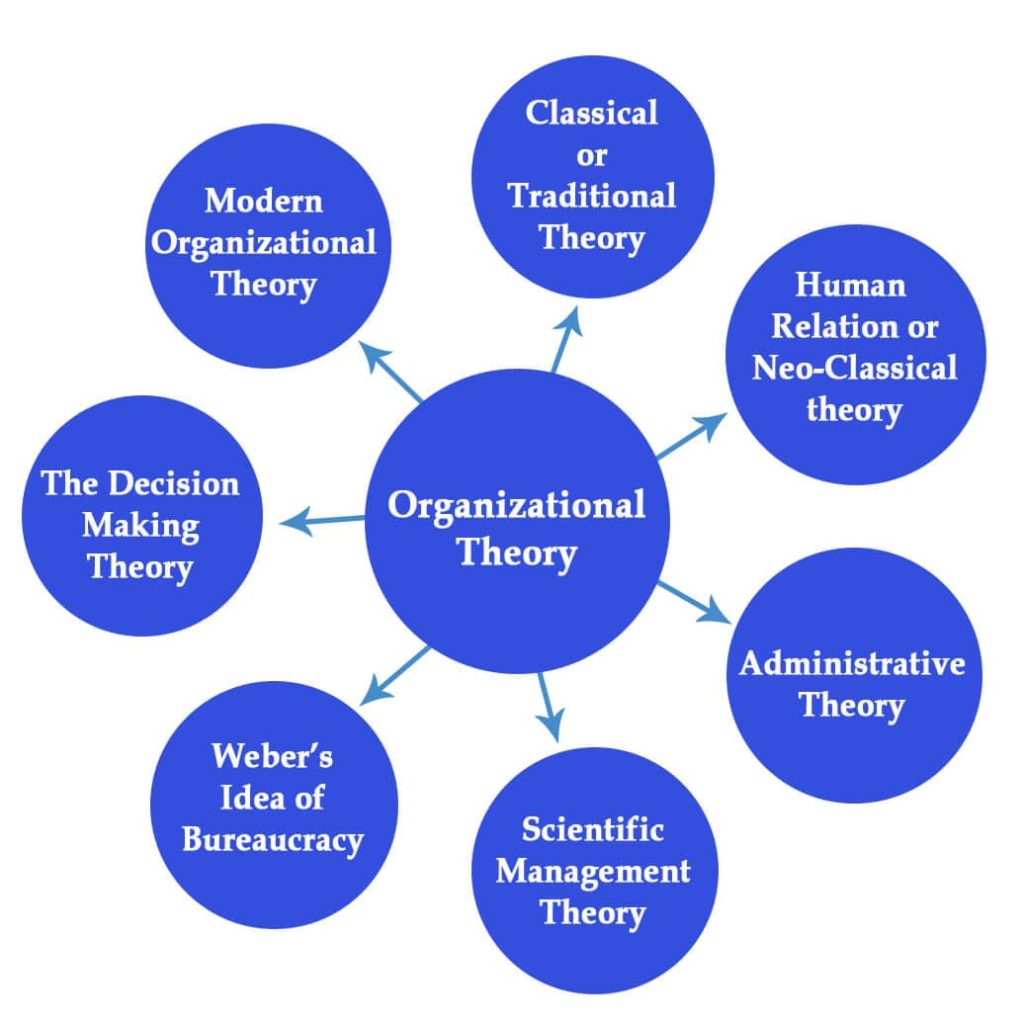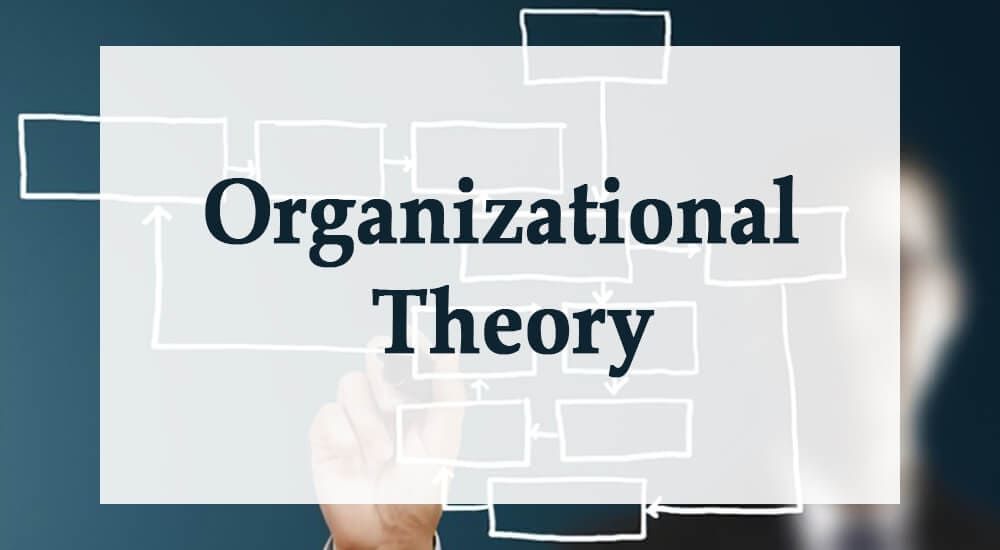Organizational theory explores how businesses work. It studies how people, processes, and systems interact within organizations. These theories help us understand the structure and behavior of companies and explain why some organizations succeed while others struggle. By applying these ideas, businesses can improve efficiency and adapt to change.
Organizational theory also looks at leadership, decision-making, and teamwork. It helps leaders create better strategies and build strong teams. This field combines insights from management, sociology, and psychology.
Understanding organizational theory can help businesses grow and thrive in a competitive world. It is practical, valuable, and widely applicable.
What is Organizational Theory?
Organizational theory studies the behavior and nature of organizations and their environments. It explains how organizations operate, grow, and adapt to change. This theory examines how individuals and groups behave within an organization under various conditions and explores the effects of internal and external environments on organizations.
The theory includes interrelated concepts that help understand the role of people, systems, and processes in achieving goals. It shows how the social behavior of individuals or units impacts the organization.
Organizational theory can help leaders improve decision-making, teamwork, and productivity. It also helps organizations adapt to challenges and better use resources. It is a valuable tool for managing and developing successful organizations.
7 Most Popular Organizational Theories

The following are the most popular and well-known organizational theories:
1. Classical or Traditional Theory
The classical or traditional theory focuses on the structure and operation of organizations. In this theory, an organization is seen as a machine, and its people are treated as its parts. The main idea is to create a system where every part works efficiently to achieve the organization’s goals. This approach emphasizes the organization more than the employees.
Classical theory focuses on tasks, rules, and authority. It highlights a clear chain of command and well-defined roles for workers. This structure helps maintain order and ensures that everyone knows their responsibilities. The theory believes that efficiency is achieved by standardizing tasks and minimizing waste.
Three key principles of the classical theory are division of labor, hierarchy, and discipline. Division of labor allows workers to specialize, increasing their productivity. Hierarchy ensures that every worker reports to a superior, creating a clear line of authority. Discipline maintains control and order in the workplace.
While the classical theory helps improve efficiency, it has some limitations. It often neglects employees’ individual needs and motivation. Workers are treated as tools, leading to dissatisfaction and low morale. The theory assumes that rules and structure alone can ensure success, ignoring the importance of creativity and adaptability.
Despite its drawbacks, the classical theory laid the foundation for modern management practices. It introduced the importance of planning, organizing, and controlling in running an organization efficiently.
2. Human Relations or Neo-Classical Theory
Human Relations, or Neoclassical Theory, builds on classical theory by including behavioral science. It views an organization as a social system in which human actions greatly affect performance. This theory highlights the importance of understanding people’s workplace behavior, feelings, and motivations.
Unlike the classical theory, it focuses on formal and informal aspects of an organization. Formal aspects include structure, roles, and tasks, while informal aspects involve relationships, group dynamics, and social interactions. This blend helps create a more balanced and human-centered approach.
The theory emphasizes the need for employee satisfaction and considers workers as valuable contributors. It shows that happy and motivated employees improve teamwork, productivity, and overall success.
This theory encourages better communication, cooperation, and leadership by recognizing the human side of organizations. It has also paved the way for more flexible management practices that address organizational goals and employee well-being.
3. Administrative Theory
The Administrative Theory was proposed by French scientist Henri Fayol. This theory focuses on the role of management in creating structure and promoting efficiency. Fayol believed in top-down management, where decisions start at the top and flow down the hierarchy.
He suggested dividing labor and assigning tasks based on skills. This helps improve efficiency and clarity in the organization. Fayol also proposed creating different departments to handle specific activities. Each department focuses on tasks that align with the organization’s overall goals.
Fayol outlined 14 principles of management, including discipline, unity of command, and centralization. These principles guide managers in planning, organizing, and controlling operations. The Administrative Theory remains influential in modern management practices.
4. Scientific Management Theory
The Scientific Management Theory was one of the first to apply engineering principles to management. It focuses on improving labor efficiency and productivity. This theory analyzes and designs workflows to maximize employee performance and economic efficiency.
Frederick Winslow Taylor, the pioneer of this theory, introduced it in the early 20th century. Scientific management, also called Taylorism, emphasizes standardizing tasks and reducing waste. It uses scientific methods to determine the best way to perform each job.
Taylor proposed training workers and selecting them based on their skills. He believed in close supervision and dividing responsibilities between managers and workers. While this approach improved efficiency, it treated workers as machines, often neglecting their emotional and social needs.
5. Weber’s Ideal of Bureaucracy
Max Weber, a German sociologist, introduced the Bureaucratic Theory in 1905. He proposed running organizations with a strict structure and clear hierarchy. Well-defined procedures and tough rules governed this structure.
Weber believed that organizations should operate through a robust bureaucratic system. This system would rely on officials who strictly follow established rules and procedures. He emphasized a formal chain of command where roles and responsibilities are clearly defined.
Weber’s theory aimed to ensure organizational consistency, fairness, and efficiency. He suggested that decisions should be based on rules, not personal preferences. While this approach improved accountability, it often led to excessive rigidity and reduced adaptability. Despite its limitations, the theory shaped modern organizational management practices.
6. The Decision-Making Theory
The Decision-Making Theory was developed by Nobel Laureate Herbert A. Simon, who received the award in 1978 for this work. Simon viewed an organization as a structure of decision-makers.
In this theory, decisions made at the top level cascade down to lower levels. While lower levels also make decisions, the most critical and strategic ones happen at the top. This process accepts the importance of hierarchy in an organization.
Simon believed decision-making is at the core of organizational operations. He introduced concepts like “bounded rationality,” which suggests that people make decisions based on limited information and constraints. This theory helps us understand how choices are made and highlights the importance of structure and delegation in decision-making processes.
7. Modern Organizational Theory
Modern Organizational Theory views an organization as an open system. Unlike older theories, it does not treat the organization as a closed system isolated from its environment. Instead, it emphasizes that the surrounding environment impacts how an organization operates.
The environment can be internal, such as employees, processes, or culture, or external, like market trends, competition, or regulations. This theory recognizes that organizations interact with their environment and must adapt to survive and grow.
Modern organizational theory considers the complexity and interdependence of systems. It highlights the need for flexibility, innovation, and responsiveness to changes. By studying these interactions, organizations can improve decision-making and effectiveness.
This theory combines insights from various fields, including sociology, economics, and technology. It provides a holistic view of organizations, helping them stay relevant and competitive in a dynamic world.
Summary
Organizational theory provides valuable insights into how businesses function and adapt in various environments. It explores the roles of structure, people, and processes in achieving goals. By understanding classical, modern, and behavioral approaches, leaders can improve efficiency, develop innovation, and enhance employee satisfaction.
These theories guide organizations in addressing challenges and building sustainable success. In a constantly changing world, organizational theory remains crucial for managing growth and maintaining competitiveness.

Fine concept and concise to the point.